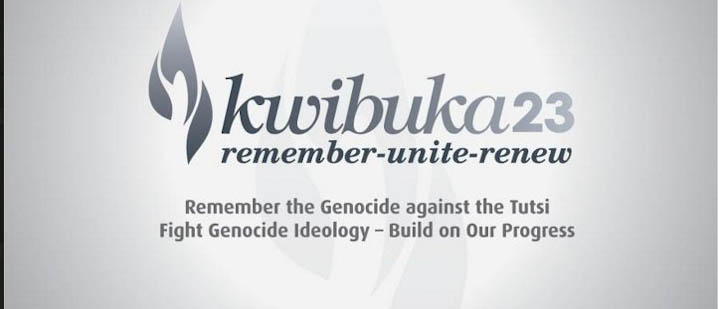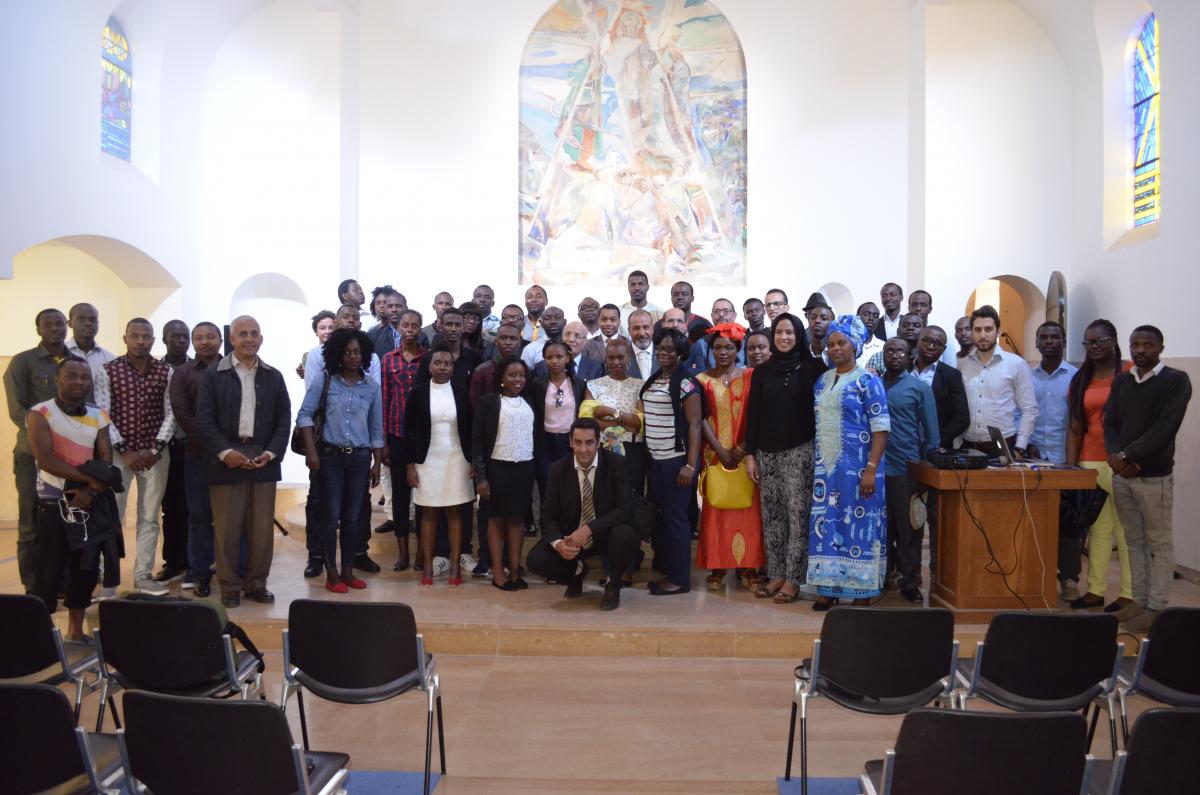KWIBUKA 23: MOROCCO COMMEMORATES THE 23RD ANNIVERSARY OF THE GENOCIDE AGAINST THE TUTSI

April 8th, 2017, Rabat. The National Human Rights Council of Morocco (CNDH), the Embassy of Rwanda, the Circle of Friends of Rwanda, and the Ecumenical Institute of Theology “Al Moufaqa” joined the Rwandan diaspora in Morocco in commemoration of the “Kwibuka 23”.
“Kwibuka” means ‘to remember’ in Kinyarwanda, Rwanda’s national language. To remember the 1994 Rwandan genocide against the Tutsi is a manifestation to both honor the fallen and to be given a meaningful tribute. This commemoration in Morocco is part of a series of events taking place both in Rwanda and around the world beginning on April 7th every year.
At the opening ceremony, Mr. Abderrazzaq El Hannouchi, Head of the cabinet of the CNDH’s president, highlighted the obligation to preserve the memory of the victims, and thereby the necessity to reinforce guarantees to prevent genocides.

He insisted on the importance of advocacy on human rights education in order to strengthen actions that prevent such atrocities. At this commemoration, he expressed sympathy and assured that the Moroccan people and the CNDH are standing by Rwandan people in this national mourning.
This event was also an opportunity to learn about the Rwandan history of reconciliation and nation rebuilding, through a short film entitled “Kwibuka 23” on the Rwandan genocide, and also through a conference “Remember the Genocide against the Tutsi, Fight Genocide ideology, and Build on our progress”.
At this conference, light was shed on the importance of upholding the memory of the victims, the transitional justice and reconciliation. Speakers present at this event were: Mr. Mustapha Brakez, Coordinator of the Circle of Friends of Rwanda, Mr. Mohamed Ayatt, Member of CNDH and Senior Legal Advasor to the Prosecutor of the United Nations International Criminal Tribunal for Rwanda, and Mr. Parfait Ishungure, President of Rwanda’s diaspora in Morocco.
Morocco acceded to the Convention on the Prevention and Punishment of the Crime of Genocide in 1958. The country’s new Constitution of 2011 criminalizes genocide, crimes against humanity, war crimes and all serious and systematic violations of human rights in its Article 23.
In 2013, the CNDH was a partner in the project “Exit Xenocide”, an important movement aiming to raise awareness of xenophobia and genocide. The purpose of this project was to produce a feature film based on thousands on unpublished videos produced by internet users around the world on xenophobia, racism and genocide.
This project was initiated by the American NGO “The world Memory Film Project”, supported and backed by the Islamic Educational, Scientific and Cultural Organization (ISESCO), and several Moroccan stakeholders such as the CNDH and the Maghreb Arab Press Agency Foundation (MAP).
In 1994, the Rwandan genocide took place between April and July; more than one million people were killed. In November 1994, the UN Security Council adopted resolution 955 establishing the International Criminal Tribunal for Rwanda in order to deliver verdicts against persons found responsible for committing genocide; it was the first institution to recognize rape as a mean of perpetrating genocide.






















